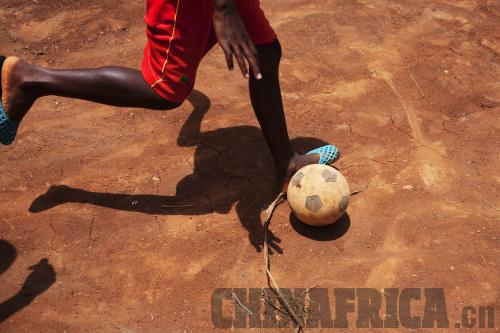| 
China
Pacing Urbanization
China is likely to roll out a blueprint this year to guide the country's urbanization process to advance in an "orderly and healthy" way, according to the National Development and Reform Commission (NDRC). The NDRC is coordinating related authorities to compile the blueprint. China needs better planning to improve the quality of urbanization, particularly to address problems such as inadequate services provided to new urban dwellers from rural areas, backward infrastructure and imbalanced distribution of resources between megacities and small- and medium-sized cities, the commission said. China's urban population rose 1.3 percentage points to 52.57 percent of the country's total in 2012, according to figures from the National Bureau of Statistics.
Ghana
Water Deficit
Ghana will need $2 billion to resolve its potable water deficit for the next 13 years, according to the Ghana Urban Water Company Ltd. The West African country currently produces 682,160 cubic meters of water a day, but is unable to meet the nation's demand of 1,076,526 cubic meters, resulting in a water deficit of nearly 40 percent. The company needs financial support to embark on a massive expansion of all of its 86 water systems across the country. Lack of resources from the government to undertake this expansion has resulted in persistent water deficit over the years, especially in the urban centers.
Burundi
Cooperation Agreement
The Burundian Government, via the Burundi Central Bank (BRB) and the International Finance Corp. (IFC), recently signed a cooperation agreement whereby the BRB appointed the IFC to provide "specific advisory" services to support the development of an appropriate credit reporting system for Burundi's market, said a press release from the IFC. According to the press release, it will include the development of a new legal framework, capacity building for the BRB, development of a credit reporting infrastructure, identification and implementation of suitable technology requirements, and putting in place processes for effective supervision of the credits information sharing system.
Uganda
Road Improvement Project
In March, the African Development Bank Group approved a loan of $144.89 million to be used for the development of roads and transportation services in Uganda. The project is expected to reduce transportation costs, improve access to social and economic infrastructure and increase mobility, thus improving the nation's standard of living through better transport services and increased access to social services. Some 870,000 people are expected to benefit from the project, which aims to create about 1,200 jobs, of which 80 percent will be reserved for local workers.
South Africa
Wine, Fruit Exports Promotion
The Western Cape Provincial Government of South Africa is trying to promote the province's wine and fruit in new markets such as China, Premier Helen Zille said recently. South African wine exports to China have grown by 50 percent annually for the past three years. Although South Africa only supplies 3 percent of the Chinese wine market, China has now become one of South Africa's top 10 export destinations, she said. Shandong Province in China and the Western Cape are sister provinces. Western Cape also has bilateral agreements with Shandong in the fields of agriculture, trade and investment, economic cooperation, as well as governmental cooperation.

Africa
African Youth Games
Botswana has been granted the opportunity to host the Second African Youth Games, which are to be held in 2014 on dates yet to be announced. A host contract between the Association of National Olympic Committees of Africa and the local organizing committee represented by the Botswana National Olympic Committee and the Ministry of Youth, Sport and Culture was recently signed in Gaborone, Botswana's capital. The games are open to young African athletes 18 years old and under.
Namibia
Healthier Food in Schools
Namibia's Ministry of Education is considering introducing healthier food to the national school feeding program, and has set its sights on expanding the feeding program to include secondary schools. But the ministry's current focus is the possible diversification of the food offered by the basket feeding program. The school feeding program was introduced in 1991 by the World Food Programme to provide daily meals to primary schools before it was taken over by the Ministry of Education in 1996. The program currently feeds 275,000 primary school students, orphans and vulnerable children at 1,300 schools throughout the country.
|